Nov. 7, 2011
By Julie Thibodeaux
The Sustainability + Me! event was held Nov. 5 at KERA in Dallas. Gathered in one room were some of the biggest advocates for sustainability in the area -- among both the speakers and the audience. The free program hosted by Net Impact DFW ( http://netimpactdfw.org/) featured seven pioneers in the local sustainable movement who shared their visions and personal journeys. About 90 people attended, many of them green business owners and members of local green advocacy groups.  This was the first major event for the nonprofit organization started last year. Organizers said they wanted event-goers to hear some real-world examples of sustainable living and leave inspired to make changes in their own lives -- some they hadn’t considered yet. “Nothing will change until behaviors change,” said Kim Young, president of Net Impact DFW. The seven speakers ranged from a woman who transformed an empty lot in her neighborhood into a community garden for children to an architect who specializes in sustainable designs.
This was the first major event for the nonprofit organization started last year. Organizers said they wanted event-goers to hear some real-world examples of sustainable living and leave inspired to make changes in their own lives -- some they hadn’t considered yet. “Nothing will change until behaviors change,” said Kim Young, president of Net Impact DFW. The seven speakers ranged from a woman who transformed an empty lot in her neighborhood into a community garden for children to an architect who specializes in sustainable designs.
Lifestyle changes
Margie Haley, the former co-chair of Sustainable Dallas and longtime advocate for sustainable living, kicked off the showcase by sharing how she greened up her suburban home near White Rock Lake gradually, at times shocking her husband and the neighbors. Over they years, she added a solar array, a metal roof, xeriscaping, beehives, an aquaponic system and chickens. “I tried to make one change every year,” she said.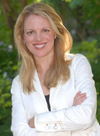 She introduced the first speaker, Anna Clark, author of Green, American Style, who described a similar metamorphosis. Clark went from being a “Neiman Marcus girl” with a high-powered sales job living in a gated community to becoming the founder of a green consulting business living in one of Dallas’s first LEED platinum homes
She introduced the first speaker, Anna Clark, author of Green, American Style, who described a similar metamorphosis. Clark went from being a “Neiman Marcus girl” with a high-powered sales job living in a gated community to becoming the founder of a green consulting business living in one of Dallas’s first LEED platinum homes
Clark said her journey began when as a new mother she was flipping through a Sierra Club magazine only to find herself overwhelmed after reading a story about walruses suffering from the effects of climate change. Haunted by the images of the walruses trapped on melting icebergs led her to take a hard look at her lifestyle and make changes. “I recognized something deep inside was yearning to come out,” said Clark. At times she despaired of ever kicking her case of “affluenza,” but also begin to see how becoming a green consumer was a way out. “We can purchase things that make our lives better. By buying from a green entrepreneur, I was empowering him to do what he does.”
Community changes
While Clark shared her road to becoming a responsible consumer, other speakers spoke about community projects they tackled
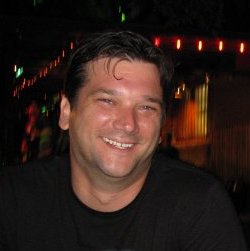 Jeff Keic, sustainability director of Deep Ellum, described how he has worked with volunteers to make the Dallas neighborhood more livable by adding murals, installing garden boxes and putting in an electric car charging station.
Jeff Keic, sustainability director of Deep Ellum, described how he has worked with volunteers to make the Dallas neighborhood more livable by adding murals, installing garden boxes and putting in an electric car charging station.
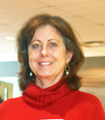 Elizabeth Dry, executive director of the Promise of Peace Community Garden, related how she led a group of volunteers to turn a vacant lot in her Dallas neighborhood into a place where children gather and are uplifted by working in the community garden. “Children are hungry for ways to make their community better,” said Dry.
Elizabeth Dry, executive director of the Promise of Peace Community Garden, related how she led a group of volunteers to turn a vacant lot in her Dallas neighborhood into a place where children gather and are uplifted by working in the community garden. “Children are hungry for ways to make their community better,” said Dry.
Cultural changes
From there, two speakers talked about what they see as a paradigm shift toward sustainability in business and culture.
 Mitch Fine, programs chair for Net Impact DFW and a Plano-based financial advisor who specializes in sustainable investments, said corporations are beginning to see why becoming sustainable is good for their bottom line. He encouraged investors to choose stocks based on values as well as profit. “Invest in companies that are doing the right thing and don’t invest in companies that are not,” he said.
Mitch Fine, programs chair for Net Impact DFW and a Plano-based financial advisor who specializes in sustainable investments, said corporations are beginning to see why becoming sustainable is good for their bottom line. He encouraged investors to choose stocks based on values as well as profit. “Invest in companies that are doing the right thing and don’t invest in companies that are not,” he said.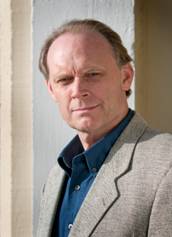 Tony Robinson, adjunct professor in environmental sustainability at SMU, predicts that developments in the energy industry will alter the culture in the coming years as much as agriculture and information technology. He added that as a society, it’s critical we learn to use energy responsibly. For example, he said simple things like switching out an incandescent bulb to a CFL would have a significant effect if everyone did it.
Tony Robinson, adjunct professor in environmental sustainability at SMU, predicts that developments in the energy industry will alter the culture in the coming years as much as agriculture and information technology. He added that as a society, it’s critical we learn to use energy responsibly. For example, he said simple things like switching out an incandescent bulb to a CFL would have a significant effect if everyone did it.
Construction changes
Two speakers touched on sustainability with regards to building and materials.
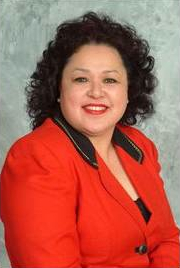 Joan Meeks, founder of Electronic Waste Disposal in Irving, said recycling was a part of her life as a youth growing up in Hawaii. She and her family combed the back roads in their El Camino picking up littered bottles. The kids used the return deposits they collected to buy candy. Later as an adult, Meeks worked into the construction industry where she was appalled at the waste it produced. “You see a container of brand new bricks going to the landfill because it’s cheaper to dump it than recycle it.” When the building industry bottomed out, she took the opportunity to return to her core values. Today she encourages others to keep waste from the landfill. “Almost everything today can be recycled.”
Joan Meeks, founder of Electronic Waste Disposal in Irving, said recycling was a part of her life as a youth growing up in Hawaii. She and her family combed the back roads in their El Camino picking up littered bottles. The kids used the return deposits they collected to buy candy. Later as an adult, Meeks worked into the construction industry where she was appalled at the waste it produced. “You see a container of brand new bricks going to the landfill because it’s cheaper to dump it than recycle it.” When the building industry bottomed out, she took the opportunity to return to her core values. Today she encourages others to keep waste from the landfill. “Almost everything today can be recycled.”
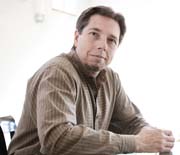 The program ended with LEED-accredited Dallas architect Gary Olp who spoke about coming to terms with the way the building industry displaces the natural world. He warned against our tendency to wipe out local ecology only to replace it with chemically enhanced lawns, paved sidewalks and non-native plants. He described working on an environmental learning center in Plano how ironically he had to convince the contractor not to chop down a tree that contained a wild bee hive. Today, that bee hive is now a real world learning opportunity for children who visit the center. “We need to think differently about the way we live in the environment.”
The program ended with LEED-accredited Dallas architect Gary Olp who spoke about coming to terms with the way the building industry displaces the natural world. He warned against our tendency to wipe out local ecology only to replace it with chemically enhanced lawns, paved sidewalks and non-native plants. He described working on an environmental learning center in Plano how ironically he had to convince the contractor not to chop down a tree that contained a wild bee hive. Today, that bee hive is now a real world learning opportunity for children who visit the center. “We need to think differently about the way we live in the environment.”
Video recordings of the presentations, recorded by Mark Neace of KEYimage Media Solutions, will be available at (http://netimpactdfw.org/ ) soon. Sign up on the Net Impact DFW website to receive email notice when the recordings will be available.
Julie Thibodeaux is a Fort Worth-based writer covering green trends, sustainable living and environmental issues. Previously she worked as a writer and editor for the Fort Worth Star-Telegram. Contact her at julie@jthibodeaux.com.









